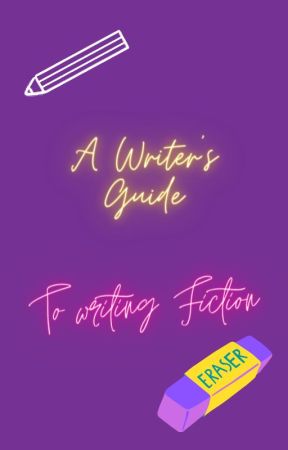Hi in this segment I am going to try and explain how to write a fictional story. I mainly write fantasy novels because you don't need to follow as many rules to make it work.
First things first though, a little tip when writing fictional stories is to have your ending planned out first. I learned that the hard way, try to map out your story so that it has a consistent plot. You also need to decide on what perspective you are going to be working from, first person or third person P.O.V.
Before writing your story it also helps to summarise what it is going to be about as it helps you focus on what your ending is going to be.
Characters within your story must have something that makes them stand out from anyone else in the story. They need to give off a sense of identity. Don't have too many main characters within the story either or else it may confuse the reader.
Don't be afraid to go into depth with certain details, this can normally help build up the atmosphere and this allows your reader to get a feel of the book. For example, instead of just saying: He stood on the hill watching the town below, say: He stood on top of the peak of the hill, watching the bustling crowds flooding the tiny town below him.
Imagery is also very important, this helps the reader to get a clear image of what you are trying to write about.
Simile - Comparison of two different things using like or as (She was as sly as a fox, his eyes sparkled like diamonds)
Metaphor - Comparison of two different things (it ran faster than the speed of sound)
Personification- giving an inanimate object qualities of a living thing (The house stared at me with blank eyes, The river ran steadily.)
Onomatapea - Using a word to describe a sound . (Crash, Bang, Hiss)
Hyperbole - Deliberate exaggeration (a single tear rolled down her cheek.)
Oxymoron - using two words that are completely next to each other. (Bittersweet, Piercing silence)
Using these will improve the quality of writing that you are producing and by using these you are more likely to keep the reader engaged with your story.
Tip: Don't have too much going on in the story as it may confuse the reader or may stop the build of suspense that is needed to keep the reader engaged.
(That's all I have for now, If you need anymore assistance leave a comment below and I will try to answer it as best as I can.)

YOU ARE READING
A Writer's Guide to Fiction
Non-FictionI am writing a small writer's guide to help anyone who wants to learn how to write fictional stories. I mainly tend to focus on Fantasy but I will try to keep to an all genre structure. Little note: I am not the best writer but this little guide te...
